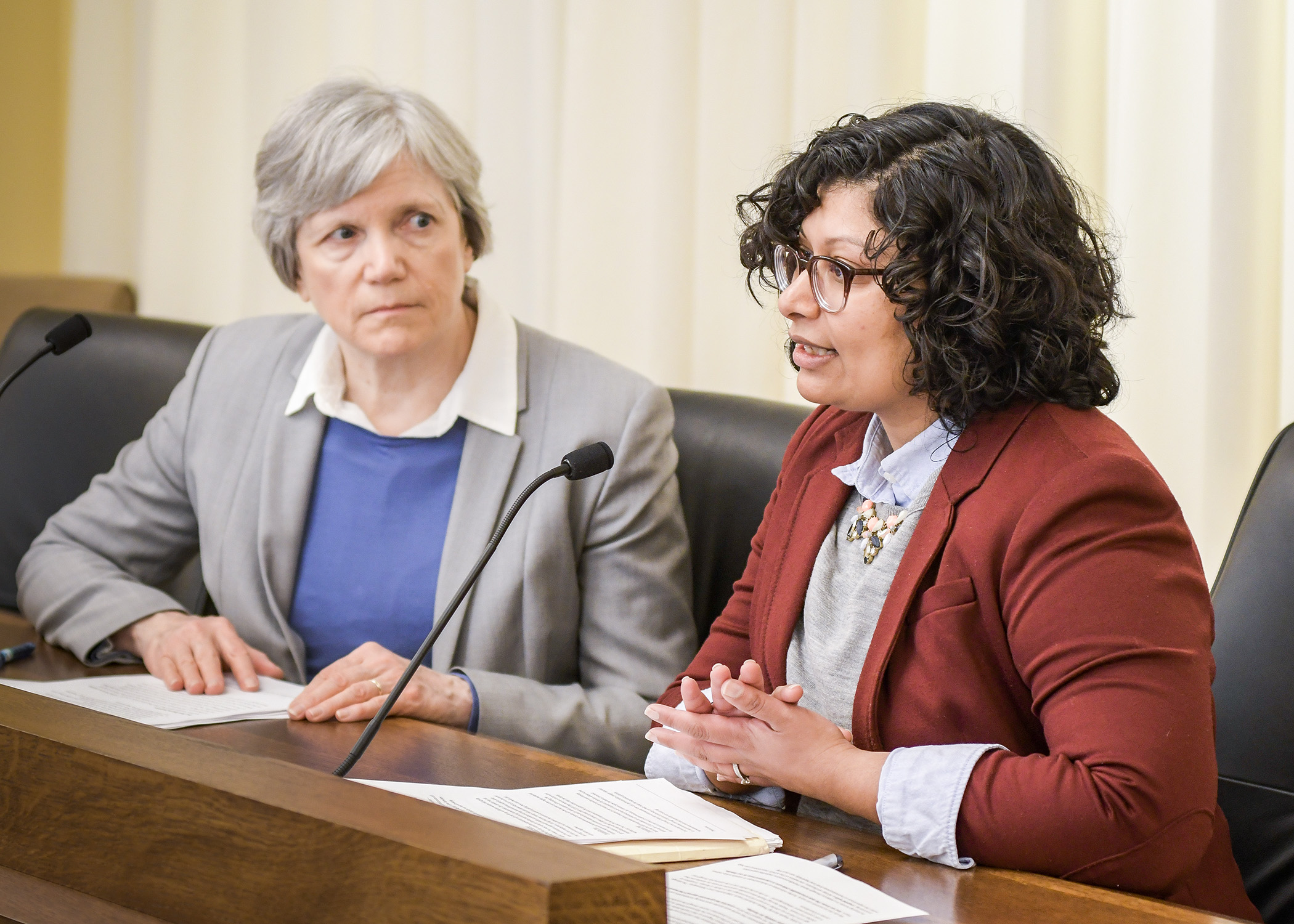Homeless families could benefit from Child Care Assistance Program modifications

It’s often difficult for families experiencing homelessness to secure housing, employment and child care all at the same time.
Sponsored by Rep. Laurie Pryor (DFL-Minnetonka), HF1238, as amended, would make changes to the Child Care Assistance Program in an effort to provide better assistance to homeless families and conform to federal requirements.
The bill was held over Tuesday by the House Early Childhood Finance and Policy Division for possible omnibus bill inclusion. The companion, SF1111, awaits action by the Senate Family Care and Aging Committee. Sen. Bill Weber (R-Luverne) is the Senate sponsor.
The proposal contains several noncontroversial provisions from the vetoed 2018 supplemental budget bill, including adding a definition of homelessness to the Child Care Assistance Program statute, explained Laurie Possin, the program manager.
“We did not have any policies that applied specifically to homeless families,” she said. “So that’s the reason why we adopted the definition that the federal government uses and as mentioned is also used in the school system.”
In addition to expanding eligibility for homeless families, it would allow them to maintain their eligibility as they move from one county or district to another. Additionally, it makes administrative changes to the application process such as adding a 5-day expedited application process and extending the verification timeline to 90 days.
Rinal Ray, associate executive director at People Serving People, said that coupling that 5-day expedited application with the 90-day verification window and activity waiver makes the most sense for the families they serve.
“Our families may not have the verification paperwork readily accessible and may need additional supports while looking for employment,” she said. “During that time, having child care allows kids to be in a structured environment, but also parents to get to work and get those documents.”
In last year’s bill, the proposal didn’t have a fiscal note. This go around, House nonpartisan research staff indicated there may be a cost to the state. However, there’s currently no fiscal note.
Division members had an array of technical questions ranging from the definition of homelessness, to the financial implications of failing to meet federal compliancy. Minnesota is currently one of a few states that are out of compliance with the federal requirements.
Possin said the state has received a number of waivers that are all set to expire Sept. 30, 2019, at which time it’s possible there will be legal and financial ramifications from the federal government.
Related Articles
Search Session Daily
Advanced Search OptionsPriority Dailies
Ways and Means Committee OKs proposed $512 million supplemental budget on party-line vote
By Mike Cook Meeting more needs or fiscal irresponsibility is one way to sum up the differences among the two parties on a supplemental spending package a year after a $72 billion state budg...
Meeting more needs or fiscal irresponsibility is one way to sum up the differences among the two parties on a supplemental spending package a year after a $72 billion state budg...
Minnesota’s projected budget surplus balloons to $3.7 billion, but fiscal pressure still looms
By Rob Hubbard Just as Minnesota has experienced a warmer winter than usual, so has the state’s budget outlook warmed over the past few months.
On Thursday, Minnesota Management and Budget...
Just as Minnesota has experienced a warmer winter than usual, so has the state’s budget outlook warmed over the past few months.
On Thursday, Minnesota Management and Budget...